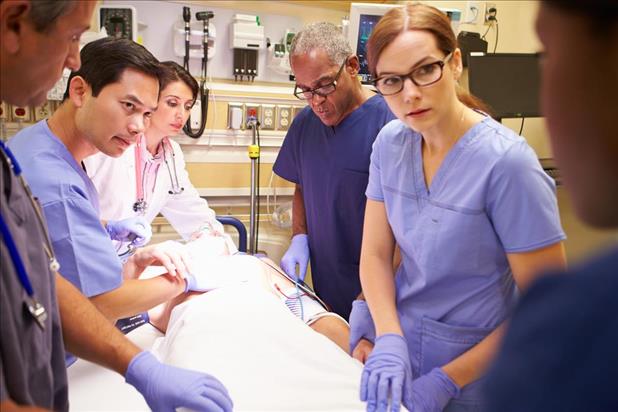

To that end, hospital administrators must make our work environments better. When health care providers have poor relationships with leadership, do not feel supported by their organization, believe that they are being treated unfairly or are unable to communicate grievances, this makes moral injury, and burnout worse. It burns us out, which makes us prone to medical errors, racial bias, depression and career changes. It creates moral distress, then moral injury. When we deal with these extraneous things, instead of providing optimal and sound clinical care, it transforms that idealistic vision we had as young doctors into a dark and unpleasant one. The uncertainty of having to think on our feet that initially fueled our adrenaline has morphed into an uncertainty of staffing and resources that now fuels our anxieties. In some parts of the U.S., particularly in rural areas and states without Medicaid expansion to cover uninsured people, my colleagues have to send some out after their emergency visits without viable options for follow-up. I have loved that over the years, I have helped some of our most vulnerable people get the care that they could not get elsewhere.īut lately, my love has dampened.
#Doctor hospital emergency plus
But I loved that the emergency care was supposed to be a great equalizer-a safety net where we treat you regardless of your race, creed, gender or ability to pay. I have loved that it’s an exciting field of medicine-at any moment anyone and anything can walk in, whether a 23-year-old gunshot victim or a 60-year-old patient in cardiac arrest, and I’d have to use everything I’d ever learned in medical school, plus some, to try and help them. I knew that I would face uncertainty at times. When, I chose this specialty 30 years ago, I knew that the emergency department would be a high volume, high stress environment. We need our administrators to acknowledge this, to listen to us and to rebuild our environments so that we can treat people quickly, fix what’s wrong, and when called to, save their lives. We have long known emergency departments are broken. Match Day tells us that medical students are realizing this. When people come to us, some on the worst day of their lives, we cannot take care of them in the way that we have been trained to do. In two years, the number of applications for usually-competitive emergency medicine residencies has dropped by 26 percent, leaving 555 spots open this year.Įmergency medicine physicians and the nurses who work with us are suffering from burnout, depression, and deep moral injury more than ever before. A few days ago, on the largest Match Day in history, when about 40,000 medical students all over the country learned where they would do their next years of training after an often ultra-competitive process for a limited number of spots, hundreds of emergency medicine residency positions went unfilled. But many of these problems existed before the pandemic, and it looks like things are getting worse. You feel powerless, exhausted and even grief-stricken.īy now, thanks to COVID, many people are aware of the challenges of working in an emergency department.

Your department is gridlocked because you can’t move people out or to get things done because there are not enough people. People lash out at you out of frustration over their long waits. This leaves less space to see or treat the now growing line of people in the waiting room.
#Doctor hospital emergency full
Your ED is full of people “boarding”, or who need to be admitted to the hospital but are stuck - there are not enough beds available to transfer that person out of the emergency department. You want desperately to see the patient who has been waiting for hours, but the department is short staffed because of widespread nursing shortages, projected to create 450,000 open positions by 2025. You are an emergency physician, nurse or one of the countless other providers who contribute to this critical care. Finally, someone takes you to the treatment area, but it’s only to wait again surrounded by what seems to be utter chaos before eventually, sometimes hours later, a harried doctor comes to see you. As the clock ticks, many people leave, taking a risk to manage their illness on their own. You are surrounded by other sick people, some with contagious diseases. Hours pass and it’s likely you still have not been treated. If you are lucky, you quickly check in with a triage nurse who takes your vitals and registers your complaint-before sending you back to the lobby. Picture yourself in the emergency department in desperate need of acute care.


 0 kommentar(er)
0 kommentar(er)
